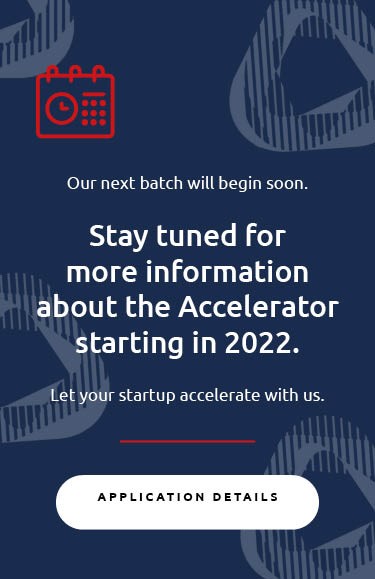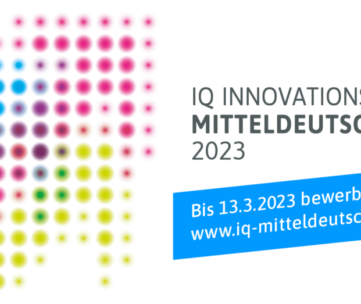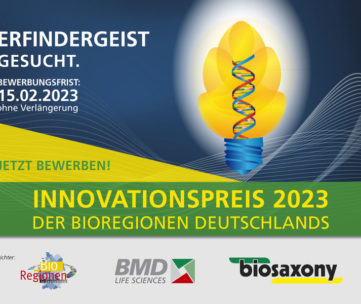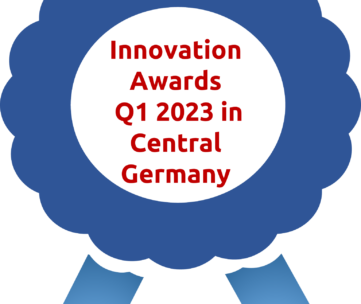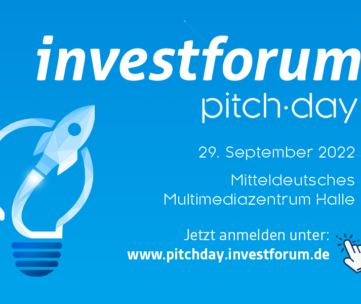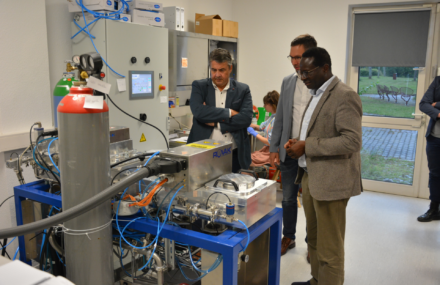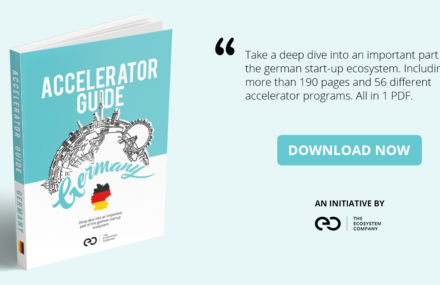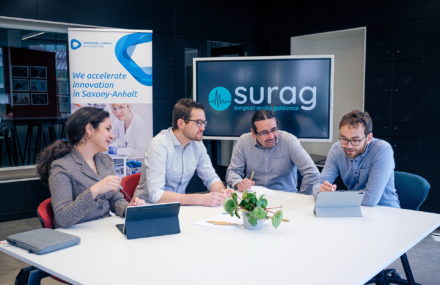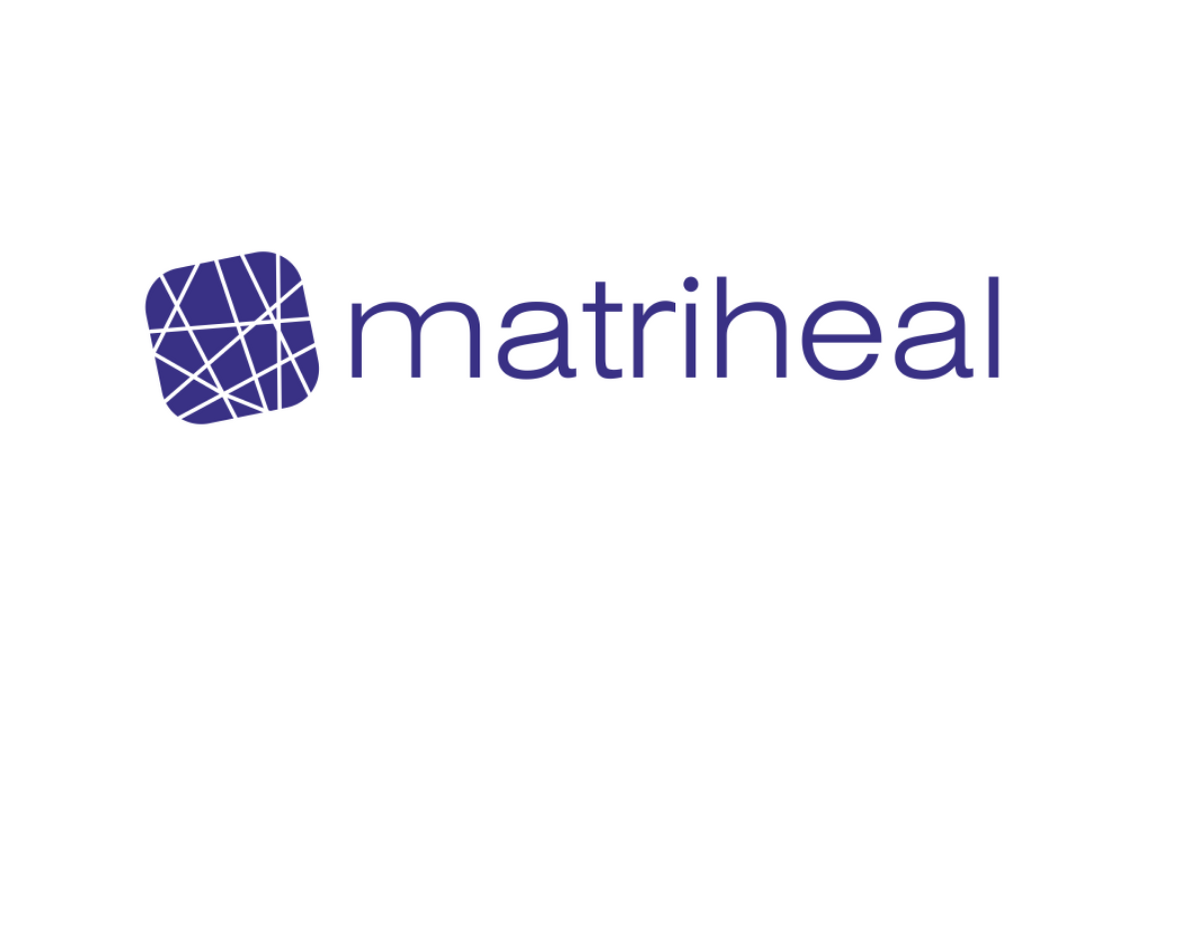
Interview with matriheal
After the first batch of the Weinberg Campus Accelerator we sat down with one of the teams of the program. matriheal told us more about their product, thoughts on the program and their prospects for the upcoming years.

Tobias and Marco, could you please briefly introduce yourselves and your startup project!
Tobias: My name is Tobias Hedtke, I am 29 years old and studied biochemistry at the Martin Luther University in Halle. Since 2017, I have been doing my PhD at the Fraunhofer Institute for Microstructure of Materials and Systems IMWS and am working on elucidating the molecular structure of the extracellular structural protein elastin. We use the findings to develop and characterize elastin-based biomaterials. Beyond the topic of my PhD, in 2016 in our research group at the Fraunhofer IMWS we started to develop a process that allows us to efficiently isolate elastin in large quantities and prepare it for further processing. With the help of these methods, we are able to produce innovative and novel materials for medical applications. This is also the basis of our spin-off project “matriheal”, with which we want to bring our materials to market as medical products, especially for wound care.
Marco: I am an engineer and have been working for many years on the further processing of nanofiber materials for regenerative medicine. Such nanofiber materials have unique properties, such as large porosity and a nanofiber network that is particularly interesting for cells in human tissue. It is also such nanofiber materials made of elastin that we can use for improved wound healing and that are among our most innovative products. In general, we at the Fraunhofer IMWS try to conduct research that is as close to application as possible. It is therefore only logical to bring the developed solutions to the market via spin-offs or licenses.
What entrepreneurial or social impact do you see for your product?
Tobias: Pure elastin is not yet available on the market in large quantities, so it has not yet played a role in the pharmaceutical, medtech or cosmetics industries. However, elastin brings decisive advantages or expansions regarding the efectiveness or range of function in comparison to the already established collagen. It is therefore a very interesting raw material, which we want to make available on the market and which, with our products, should also establish a new approach in the treatment of wounds. We are pursuing the goal of simplifying the treatment of complex and chronic wounds in particular with our innovative products, significantly shortening the treatment time and thus also reducing the suffering of patients.
From my point of view, the Accelerator program offers great added value, especially for “startup newbies” like us, because the program imparts extensive knowledge on a wide range of startup and MedTech topics.
Tobias Hedtke, matriheal
What do you appreciate about the Weinberg Campus?
Tobias: At the Weinberg Campus I have always appreciated that all scientific institutions are located here and connected with each other. In my former work at the Institute of Pharmacy and also in my current work at the Fraunhofer IMWS, it is always gratifying to see that through many nice contacts and cooperations, one hardly encounters a problem for which one does not find solutions at the Weinberg Campus.
Marco: I was particularly impressed by how many small and highly innovative companies and startups are here alongside the large institutes and research facilities. Most of them also have a MedTech or natural science background and have had similar experiences to ours over the past few months. This creates an exciting atmosphere that definitely motivates you even more.
Why did you decide to participate in the Weinberg Campus Accelerator?
Tobias: Through the internal technology transfer program AHEAD, which is organized by Fraunhofer Venture and within the framework of which our idea is financially supported, we were already able to gain various and comprehensive insights into the startup world. The Accelerator Program of the Weinberg Campus was a fitting addition to this and also dealt with many of the MedTech-specific topics in more detail and depth. We are glad that we were able to deepen and decisively expand our knowledge through the Accelerator Program.

What advantages does the program offer you? How did it help you?
Tobias: A decisive and particularly valuable advantage of this program is the individual one-on-one coaching sessions that were offered on a topic-specific basis. In these sessions, we had the opportunity to work on and discuss specific topics in the context of our own startup idea with an expert for several hours. In a coaching session, for example, we developed a roadmap that showed us the individual steps from the demonstrator from the lab to the approved medical product in terms of time and finances. Another advantage was the manageable class size and the possibility to always have the opportunity for detailed questions and discussions even during the workshops.
Marco: In my eyes, one of the biggest advantages of the Accelerator program is the network you can build as a startup. On the one hand, we got contacts with the coaches, who are all experts in their field and have many years of experience and a large network themselves, and who were eager to help us become successful. On the other hand, and this is not unimportant for a startup, we were able to present ourselves to potential investors and also received the necessary preparation for this.
From your point of view, why should other startups or founding projects participate in the Weinberg Campus Accelerator?
Tobias: From my point of view, the Accelerator program offers great added value, especially for “startup newbies” like us, because the program imparts extensive knowledge on a wide range of startup and MedTech topics. In addition, the coaching sessions provided us with practical tools that will make it easier for us to implement our idea, especially with regard to regulatory aspects. I recommend every local MedTech startup to participate in the Accelerator program.

What are you expectations on the Weinberg Campus from an entrepreneurial and very personal perspective?
Tobias: I would like to see further and more comprehensive investments in the location in the future, so that innovation can continue to be created at the Weinberg Campus and the national and international visibility continues to increase.
Can you think of any incidents that you associate with the Weinberg Campus?
Tobias: Since 2011, my entire scientific and professional career has been closely linked to the Weinberg Campus, so I have only positive associations and hope to be able to create many more in the future.
Marco: Personally, I have been connected to the site since my childhood. My parents have a garden nearby, where I spent most of my summers. And even today, I still recognize a lot of things from back then. Also, my wife studied here and I often picked her up here. My daughter was born in the university hospital. Almost every year I visit the “Lange Nacht der Wissenschaft” with my nephew, and now I even work here. In short, it’s a special place for me and I’m happy if it continues to grow sustainably without losing its character.
Photos by Michael Deutsch
The interview in German can be found here.


